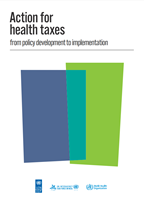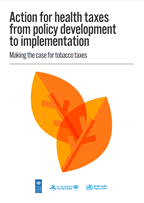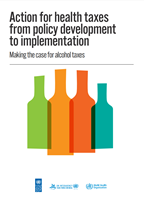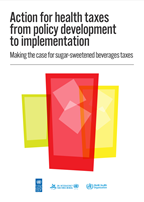This series of reports provides a practical guide to developing, strengthening, and implementing health taxes, with a focus on managing the broader stakeholder environment (also referred to as ‘the political economy’). The reports outline a practical step-by-step framework to help policymakers and other interested stakeholders build the cases for effective tobacco, alcohol, and sugar-sweetened beverage taxes to prevent and control noncommunicable diseases (NCDs), drawing on existing guidance.
The reports have been designed to be used across a range of national contexts, addressing common issues in designing, negotiating, and implementing health taxes, while also offering case studies for further insights.
The publications are aimed at policymakers across government, for example health, finance, and trade, as well as non-State actors.
The first paper of the series, entitled Action for health taxes - from policy development to implementation, consists of two parts: the rationale for health taxes and a framework for policy development and implementation that features best practices, practical activities, insights, and strategies to guide stakeholders at each stage.
The papers that follow focus on making the cases for tobacco, alcohol, and sugar-sweetened beverage taxes, providing the rationale for these taxes, with a framework for action, focusing on how to ensure an effective political and policy environment to successfully introduce, build and sustain these taxes.




